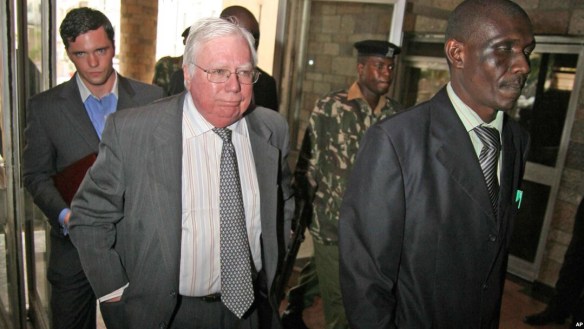A lot to come to grips with in terms of Kenya’s role as a playground for international elites, often pretending to do “philanthropy” while playing, investing and intriguing.
Back in 2019 I took note of the situation but I did not anticipate then that someday the Justice Department would release perhaps half their records seized from and related to Epstein;
For example –
From: Sultan Bin Sulayem
Sent: Friday, October 24, 2014 10:41 PM
To: Jeffrey Epstein
Subject: Kenya
Attachments: IMG_6878.1PG; Untitled attachment 00010.txt; IMG_6879JPG; Untitled attachment
00013.txt; IMG_6880JPG; Untitled attachment 00016.txt
I am in Mombasa had a three hour meeting with president Uhuru Kenyata we ar= going to build a big logistic park to
serve Kenya south Sudan Uganda centr=l African republic and Rawanda Sultan
————/
To: jeevacationeNmaitcom[jeevacation©gmail.com]
Cc:
From: Peggy Siegal
Sent Mon 5/11/2009 9:32:50 PM
Subject: Kenya
Title: Kenya
As Paula just mentioned • the girls not only showed up for the conference call• but are now totally excited about going.
Sandy Cunningham knows exactly what to do and is giving the girls a few choices…but has them interning all over
Africa. Our luck, they will bring home Masai warriors…
We arc all kissing the ground you walk on and the African plains the girls arc about to ride on.
xoxo Peggy
——/
From: Lauren C <
Sent: Monday, April 24, 2017 1:32 PM
To: Soon-Yi Previn
Cc: Jeffrey Epstein
Subject: Bechet’s Habitat for Humanity Trip
Hi,
Bechet’s trip will start in Nairobi, Kenya (that’s where they will fly into.) She will then go to =b class=””>Homa Bay,
Kenya, the town they will be building in. A =escription from Google: Homa Bay is bay and town on the south shore of Winam Gulf of Lake Victoria, in western Kenya. The mayor of Homa Bay city is Veronica Achieng’ ohana.
Itinerary
• Day 1, welcome: Fly into Nairobi, Kenya, where Habitat for Humanity staff will pick you up at the airport. Meet your team over dinner.
• Day 2, Orientation: Habitat staff will introduce you to their sophisticated work across Kenya, which includes microloans and health programs in addition to building. Travel to your host community near Homa Bay.
• Days =-6, Build: Build new houses or housing repairs. One day will include a cultural activity, such as a tour, cooking lesson or visit to a natural site. At night, reflect with your team and enjoy free time.
• Day 7, Celebrate: Build, then wrap up =onstruction at a farewell celebration with your partner family and neighbors.
• Day 8, Reflect: Drive back to Nairobi. At the final team dinner, reflect on your experience and what it means.
• Day 9, Goodbyes: depart for home or independently continue your travel in Africa.
Lauren
Lauren Cheung
Assistant to Woody Allen
MANHATTAN FILM CENTER
575 Park Avenue
New York, NY 10065
———-/
From: Lesley Groff
To: Darren Indyke
Subject: Jeffrey’s 2nd Passport
Date: Wed, 01 May 2013 16:56:07 +0000
Attachments: Scan_14.pdf
Jeffrey wants his 2nd passport renewed…he responded with below:
kenya, south africa, china june 1- 30
I am having an itinerary made with Amex to Nairobi, Kenya on June 1, Cape Town, South Africa on June 11 and on to Beijing, China on June 18, back to NY arriving June 29(sound good!?)
I am also filling out other forms that need to be signed by JE…can you please tweak the below letter so it will represent what JE is and what company he is president of and etc. with the towns and dates I have provided?








